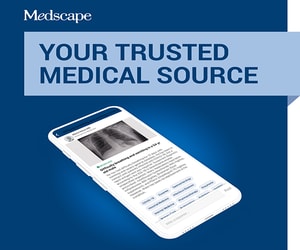Editor's note: Find the latest COVID-19 news and guidance in Medscape's Coronavirus Resource Center.
Three American professional cardiology societies have issued a joint statement urging continuation of renin–angiotensin–aldosterone system (RAAS) antagonists in patients, despite theoretical concerns that their use might worsen outcomes in the event of infection with COVID-19.
The new statement was issued jointly by the American Heart Association (AHA), American College of Cardiology (ACC), and Heart Failure Society of America (HFSA) on March 17.
It follows similar recent statements from the European Society of Cardiology (ESC), as reported yesterday by Medscape Medical News, and the European Society of Hypertension, Canadian Cardiovascular Society, and International Society of Hypertension, among others.
"We understand the concern — as it has become clear that people with cardiovascular disease are at much higher risk of serious complications including death from COVID-19," said AHA president Robert A. Harrington, MD, chair of the department of medicine at Stanford University, California, in a statement.
"However, we have reviewed the latest research — the evidence does not confirm the need to discontinue ACE inhibitors or angiotensin-receptor blockers (ARBs), and we strongly recommend all physicians to consider the individual needs of each patient before making any changes to ACE inhibitors or ARB treatment regimens."
In the Event of Diagnosis With COVID-19, Individualize Treatment
As with the ESC and other statements, the new AHA/ACC/HFSA statement is in response to an article suggesting theoretical harm published March 11 in Lancet Respiratory Medicine.
The new coronavirus SARS-CoV-2 that causes COVID-19 infects human cells by binding to ACE2 receptors, and some animal studies have suggested this mechanism upregulates ACE2 expression in the heart.
The Lancet article speculates that in patients with diabetes and hypertension ACE2 upregulation from ACEIs and ARBs could increase the risk of developing severe and fatal COVID-19.
The authors suggested that the medications may be partially responsible for the more severe and fatal course of COVID-19 seen in individuals with hypertension, diabetes, and cardiovascular disease.
This article received some media coverage and social media play in the United Kingdom, resulting in patients contacting their physicians and in some cases discontinuing their drugs.
In general, the three American cardiology societies advise "continuation of RAAS antagonists for those patients who are currently prescribed such agents for indications for which these agents are known to be beneficial, such as heart failure, hypertension, or ischemic heart disease."
However, they say, "In the event patients with cardiovascular disease are diagnosed with COVID-19, individualized treatment decisions should be made according to each patient's hemodynamic status and clinical presentation."
No Evidence of Harm or Benefit...More Research Needed
There is also a theory that ACE inhibitors and ARBs might be paradoxically beneficial in coronavirus infection.
This comes from the fact that ACE2 converts angiotensin II to vasodilatory angiotensin 1-7, thereby potentially exerting a hypotensive effect, and in animal studies both types of drugs have been shown to reduce severe lung injury in certain viral pneumonias.
However, the three societies clarify: "Currently there are no experimental or clinical data demonstrating beneficial or adverse outcomes with background use of ACE inhibitors, ARBs, or other RAAS antagonists in COVID-19 or among COVID-19 patients with a history of cardiovascular disease treated with such agents."
Therefore, they urge, "Be advised not to add or remove any RAAS-related treatments, beyond actions based on standard clinical practice."
"These theoretical concerns and findings of cardiovascular involvement with COVID-19 deserve much more detailed research, and quickly. As further research and developments related to this issue evolve, we will update these recommendations as needed."
In an interview with Medscape Medical News, David Gurwitz, PhD, the author of the article speculating ARBs might represent a "tentative" SARS-CoV-2 therapeutic, said he has been in touch with clinicians in Italy in attempts to retrospectively gather data from their COVID-19 patients to correlate antihypertensive class use with outcomes.
"We are working as quickly as possible, but the Italian clinicians are extremely busy so it may take some time. Things are very tough in Italy right now."
For more from theheart.org | Medscape Cardiology, follow us on Twitter and Facebook.
Medscape Medical News В© 2020 WebMD, LLC
Send comments and news tips to news@medscape.net.
Cite this: US Cardio Societies: Continue Antihypertensives Amid COVID-19 - Medscape - Mar 17, 2020.









Comments